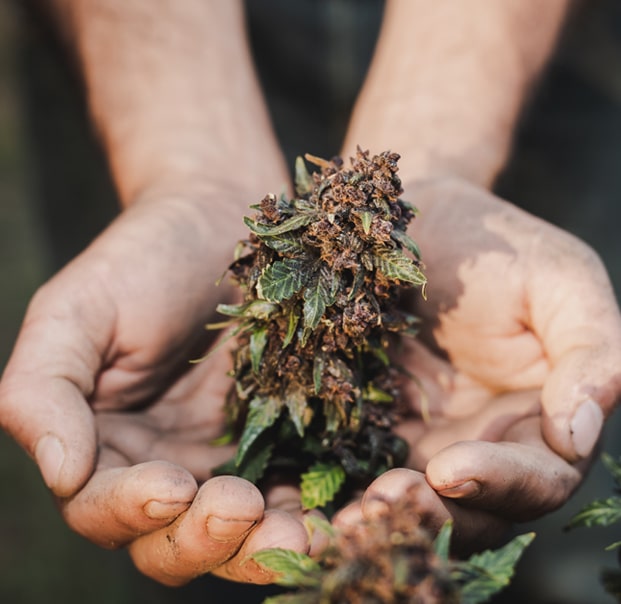Background
The cannabis industry is projected to create over 5,000 jobs and generate $1 billion in annual sales in Rhode Island by 2025.
To kickstart your journey into the world of cannabis entrepreneurship in Rhode Island, securing a Rhode Island cannabis license is your first crucial step. Navigating the cannabis license application process can be complex, but with the right guidance, you can streamline the procedure.
Types of Cannabis Licenses in Rhode Island
Cultivation Licenses
Permits for growing cannabis, with various tiers based on facility size and growing conditions.
Manufacturing Licenses
Allows for processing cannabis into various products, including extracts and edibles.
Retail Licenses
Enables the operation of dispensaries and delivery services for medical and/or recreational use.
Distribution Licenses
Required for transporting cannabis products between licensed facilities.
Cultivation Licenses
Cultivators licensed for medical and adult-use. Includes plant limits and zoning.
Back to the TopManufacturing Licenses
Product manufacturing license includes extraction and infused products.
Back to the TopRetail Licenses
Retailer licenses limited. Includes hybrid medical/adult-use dispensaries.
Back to the TopHow to Obtain a Cannabis License in Rhode Island?
Research and Prepare
To successfully obtain a cannabis license in Rhode Island, conducting thorough research and preparation is crucial. Here are some steps to consider:
- Research Requirements: Research the specific requirements and criteria for obtaining a cannabis license in Rhode Island. This includes understanding the regulations, restrictions, and any prerequisites the state sets.
- Eligibility Criteria: Determine the eligibility criteria for obtaining a cannabis license. This may include residency requirements, age restrictions, and background checks. Ensure you meet all the qualifications before proceeding with the application process.
- Application Timeline: Familiarize yourself with the application timeline in Rhode Island. Understand when the application period opens and closes, and plan your preparations accordingly. Keep track of any important dates, deadlines, or updates provided by the regulatory authorities.
- Associated Fees: Be aware of the associated fees for applying for a cannabis license in Rhode Island. The average application fee for a medical cannabis cultivator license is around $25,000. There may be licensing fees, renewal fees, and other costs associated with maintaining the license.
- Compliance and Documentation: Ensure you have all the necessary documentation and comply with the regulations. This may include business plans, financial statements, security plans, and other supporting documents specified by the Rhode Island Department of Business Regulation.
- Seek Professional Guidance: Consider consulting legal professionals or experts with experience in the cannabis industry and Rhode Island’s regulatory framework. They can provide valuable guidance, help navigate the application process, and ensure state regulations compliance.
Note: Remember to regularly check Rhode Island Department of Business Regulation for the most up-to-date information, forms, and guidelines regarding cannabis licenses.
Develop a Solid Business Plan
Developing a solid business plan is crucial when applying for a cannabis license in Rhode Island. It is important to create a comprehensive business plan that is specifically tailored to the Rhode Island cannabis market.
This entails conducting thorough market analysis, understanding customer demographics, and assessing the competitive landscape.
Key elements to include in the business plan are financial projections, operational strategies, security measures, and compliance strategies. It is advisable to seek vital insurance plans or consulting services to ensure your business plan meets the specific requirements of the licensing authorities in Rhode Island.
Professionals with expertise in the cannabis industry and knowledge of Rhode Island’s regulatory framework can provide valuable insights and guidance to help you create an effective and compliant business plan.
Assemble the Necessary Documentation
When applying for a cannabis license in Rhode Island, assembling the necessary documentation to support your application is crucial. Here is a checklist of required documents specific to Rhode Island:
- Proof of Identification and Residency: Provide copies of identification documents to establish your identity, such as a driver’s license or passport. Additionally, demonstrate residency in Rhode Island through documents like utility bills or lease agreements.
- Financial Stability and Funding Sources: Prepare financial statements, including bank statements and tax returns, to demonstrate your financial stability. Provide documentation outlining your funding sources, whether personal investments, loans, or partnerships.
- Property and Lease Agreements: Provide property ownership documents or lease agreements for your intended business location if applicable. Ensure that the property or lease agreement complies with Rhode Island’s regulations for cannabis businesses.
- Security Plans and Measures: Develop comprehensive security plans that meet Rhode Island’s standards. This may include detailed layouts of security systems, alarm systems, surveillance cameras, and access control measures to ensure the safety and integrity of your facility.
- Standard Operating Procedures (SOPs): Prepare SOPs specific to your intended cannabis operations, whether it’s cultivation, manufacturing, or retail. These SOPs should outline your processes, including cultivation techniques, manufacturing procedures, quality control, and inventory management, ensuring compliance with Rhode Island regulations.
- Employment and Labor Compliance Documents: Ensure you have employment and labor compliance documents specific to Rhode Island. This may include documents such as employee agreements, job descriptions, and protocols for fair employment practices.
Note: Remember to review the official guidelines and requirements provided by the Rhode Island Department of Business Regulation to ensure you have all the necessary documentation for a successful cannabis license application.
Submitting the Application
When it comes to submitting the application for a cannabis license in Rhode Island, attention to detail and accuracy are essential. Here’s a guide to help you through the process:
- Review the Application: Carefully read and understand the application form provided by the Rhode Island Department of Business Regulation. Take note of any specific instructions, required documents, and submission deadlines.
- Complete the Application Form: Fill out the application form accurately and thoroughly. Provide all the requested information, ensuring that it aligns with the supporting documents and requirements outlined by the regulatory authorities.
- Double-Check for Accuracy: Review your application multiple times to ensure accuracy and consistency. Any errors or omissions may delay the processing of your application or lead to rejection. Pay close attention to details such as contact information, financial figures, and compliance-related questions.
- Include Supporting Documentation: Compile and attach all the required supporting documents as outlined in the application guidelines. Make sure the documents are organized and clearly labeled. Consider including a cover letter summarizing your qualifications, experience, and commitment to compliance and responsible operations in the Rhode Island cannabis market.
- Seek Professional Review: Consider having your application and supporting documents reviewed by professionals or legal experts with knowledge of Rhode Island’s cannabis industry. Their insights and expertise can help identify any areas for improvement and ensure that your application is compelling and meets the specific requirements.
- Adhere to Submission Deadlines: Submit your application before the designated deadline. Late submissions may not be accepted, so it’s important to plan and allocate sufficient time to complete and review the application thoroughly.
- Maintain Communication: Stay in touch with the Rhode Island Department of Business Regulation or any designated contact person regarding the status of your application. Address any requests for additional information promptly and professionally.
Note: Remember, each application is unique, and there is no guaranteed outcome. However, by preparing a comprehensive and compelling application that showcases your qualifications, experience, and commitment to compliance, you increase your chances of obtaining a cannabis license in Rhode Island.
Payment and Fees
Note: Fee structures are subject to change. Consult the official Rhode Island cannabis regulatory website for current fee schedules.
Application Fees
The application fee covers the initial costs associated with processing and reviewing cannabis business license submissions in Rhode Island. These fees vary depending on the type of license and the size of the proposed operation. It’s essential to ensure all application materials are complete and accurate to avoid delays or additional costs.
License Fees
License fees are required to maintain compliance and secure operating privileges for cannabis businesses in Rhode Island. These fees are determined based on the license type, such as retail, cultivation, or distribution, and are typically due annually. Staying current with license payments is crucial to avoid penalties or disruptions in business operations.
Application Review and Compliance Inspection
After submitting your cannabis license application in Rhode Island, there is typically a timeline for application review and compliance inspections. The specific duration may vary, but it is important to maintain ongoing communication with the licensing authorities during this process.
Promptly respond to any inquiries or requests for additional information to ensure a smooth review process. It is also crucial to prepare for compliance inspections by familiarizing yourself with Rhode Island’s regulations and requirements.
Ensure that your operations, facilities, and documentation are in compliance to navigate inspections successfully. Regular self-audits and adherence to regulatory standards will contribute to a positive outcome during inspections.
Risk and Compliance Factors From AlphaRoot
The cannabis industry, while burgeoning with opportunities, is not without its complexities and inherent risks. Understanding and mitigating these risks is crucial for long-term success. AlphaRoot, a prominent insurance and risk management firm specializing conduct business in the cannabis sector, sheds light on the key risk and compliance factors
1. Regulatory and Legal Risks
Labyrinthine Regulations The cannabis industry is highly regulated, and compliance with state and local laws is paramount for cannabis establishments. Navigating the intricate web of regulations, which can vary significantly from one jurisdiction to another, poses a substantial challenge for cannabis establishments. Failure to comply can result in fines, license revocation, or legal consequences.
Federal Ambiguity Cannabis remains illegal at the federal level in the United States, despite state-level legalization of recreational marijuana. This dichotomy creates uncertainties and exposes businesses that sell recreational marijuana here to potential federal enforcement actions.
2. Financial Risks
Cash-Intensive Operations Due to federal banking restrictions, many cannabis businesses operate primarily in cash. This not only presents security risks but also complicates financial management and taxation.
Taxation Challenges Cannabis businesses face unique tax challenges, including limitations on deductions and potential audits. Understanding and complying with tax regulations is essential to avoid financial penalties.
3. Security Risks
Theft and Robbery Cannabis businesses are susceptible to theft and robbery due to the high value of their products. Implementing robust security measures at a marijuana cultivation facility, including surveillance systems and secure storage, is vital to mitigate these risks.
Cybersecurity As with any industry, cannabis businesses are vulnerable to cyberattacks. Protecting sensitive customer data and business information is critical.
4. Product Liability and Quality Control
Product Liability Claims Ensuring the safety and quality of cannabis products is crucial to prevent product liability claims. Contaminated or mislabeled products can lead to legal and financial repercussions.
Testing and Quality Assurance Collaborating with reputable independent testing laboratory and facilities, as required by regulations, is essential to verify the safety and potency of cannabis products. Consistent quality control is essential to maintain consumer trust.
5. Market Competition and Volatility
Saturated Markets in regions with a high concentration of cannabis businesses, competition can be fierce. Navigating market saturation requires effective differentiation and marketing strategies.
Price Volatility The price of cannabis products can fluctuate significantly, impacting profitability. Businesses must adapt to market dynamics and price changes.
6. Environmental and Sustainability Concerns
Resource Intensity Cannabis cultivation and processing can be resource-intensive, including water and energy consumption. Businesses need to address sustainability concerns and adhere to environmental regulations.
Waste Management Proper waste disposal and recycling practices are essential to minimize environmental impact and meet regulatory requirements.
7. Talent and Workforce Challenges
Talent Shortages the cannabis industry often faces challenges in recruiting and retaining qualified personnel due to its specialized nature. Employee turnover can disrupt operations.
Training and Compliance Businesses must invest to ensure employees are well-informed about compliance and safety protocols.
About the Author

AlphaRoot Team
The AlphaRoot marketing team are seasoned experts with deep knowledge of the cannabis industry. Our informative articles help cannabis businesses thrive in a competitive landscape. From compliance to insurance tips, we’re dedicated to providing advice tailored to your needs.





